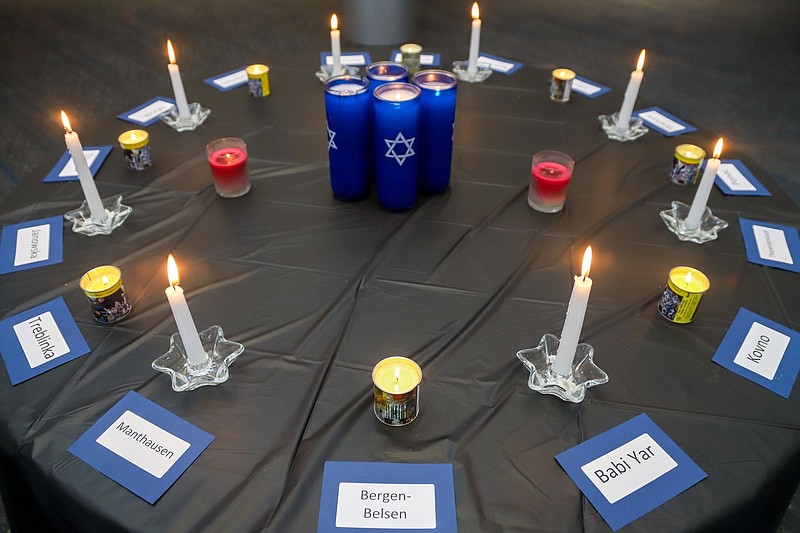When I was invited to give a webinar for Echoes and Reflections, an organization in partnership with Yad Vashem (The World Holocaust Remembrance Center), I panicked a little. This was big time, and I better deliver. Reviewing my documentary: "Untold, Stories of a World War II Liberator" and my father's wartime letters, I was reminded that not long ago, I made a similar presentation at a Chattanooga high school. A student told me that she wanted to hear "both sides of the story." I wondered what she was seeing online and knew immediately that these archival documents are still relevant today, and Holocaust education is even more so.
You can see that relevancy in the June 1941 commencement speech at Radcliffe by Supreme Court Justice Felix Frankfurter. A Jewish immigrant from Austria, Frankfurter understood the history and consequences of fascism: "... never before have college commencements been so appropriate to the times, nor so symbolic of all that we hold dear. For events compel us to reconsider the significance of our history. Circumstances which even the most ostrich-like can no longer disregard challenge the worth of our past, the validity of the faith that founded this nation, and our power to vindicate it."
I learned about those challenges reading what my dad had written: "I'm gradually getting an idea of the problems in Germany. A large part of the population never belonged to the Nazi Party — but 99.9% blame Hitler only for losing the war and seem to suffer no pangs of conscience over the origins of the war or the Party's ideology. They have no questions over the misery they brought to millions ... . They hardly consider them as humans as themselves."
Pay special attention to his analysis of how Germany, once an advanced and admired society, generated fascism and the Nazi Party: "Years of mal-education kept them ignorant and proud, selfish and egoistic, claiming Germany alone has suffered, despite her righteousness."
Yes, education is central to our future. That's why my father chose to become chief financial officer of the American Jewish Archives 50 years after he'd been a U.S. military intelligence officer. He was determined to preserve history so that it wouldn't be repeated. And now I'm part of that legacy. As he'd say, "carry on."
And I did in the webinar with people from Latvia, Australia, Germany, England, Greece and across the USA. Many of them were Holocaust educators who wanted to pass on my father's eyewitness accounts as a spy and interrogator of Nazi prisoners of war. They've probably seen surveys showing that 63% of Americans ages 18-39 don't know that 6 million Jews were murdered in the Holocaust.
The participants were not surprised by the information about Holocaust denial. I spoke about my confrontation with the infamous international Holocaust denier David Irving decades ago when he spoke in Tulsa, Oklahoma. The neo-Nazi groups surrounding the Oklahoma City bombing were a signal to him that these Americans would follow his lead.
Holocaust deniers have always been present, but they're resurfacing with a vengeance, often mingling with supremacist ideology. Education is a must-have if we're to avoid the historic consequences of such movements. We must maintain respect for human dignity, and that means learning from history. That can't be done by normalizing denials, accepting lies and legislating censorship of uncomfortable truths. That's the equivalent of the mal-education that kept so many Germans silent and complicit. It's definitely time to educate the young ... and re-educate the mal-educated. My father was right in saying, "We'd better be successful, or there'll be hell to pay."
Contact Deborah Levine, an author, trainer/coach and editor of the American Diversity Report, at Deborah@AmericanDiversityReport.com.
